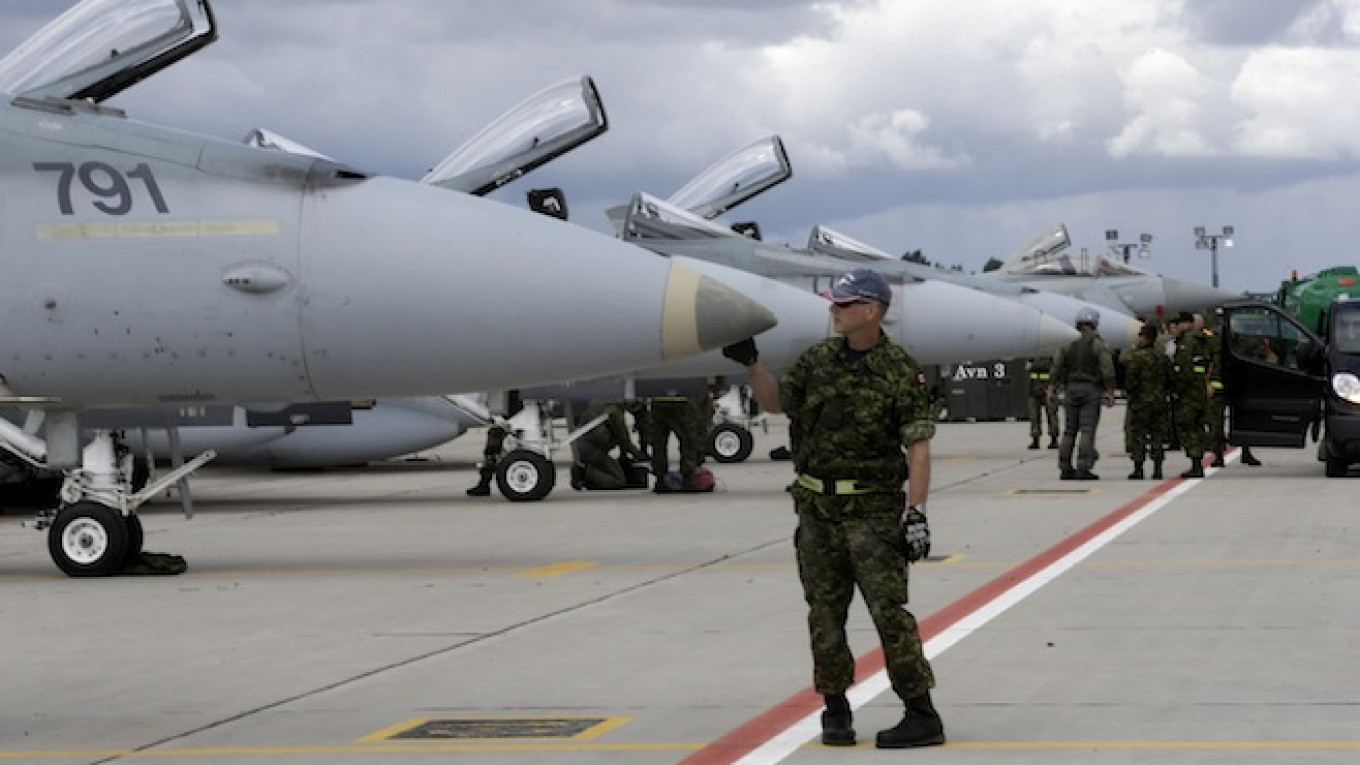Russia's Foreign Ministry says there are "whole segments of the Russian world" that may require Moscow's protection, and has singled out Baltic states by saying that Russia will not tolerate an "offensive" against its language there.
If this sounds reminiscent of the rhetoric that accompanied Moscow's annexation of Crimea, the Foreign Ministry made no secret of the intended parallel. The ministry's chief monitor of human rights overseas, Konstantin Dolgov, cited the policies of Ukraine's government in Kiev as an example of a rise of "xenophobia" in Europe, according to a transcript of a speech published by the ministry Monday.
But Ukraine is not the only place whose policies need correction, Dolgov said in his remarks, delivered over the weekend during a meeting with ethnic Russians in Latvia's capital, Riga.
"It has to be stated with sadness that a huge number of our compatriots abroad, whole segments of the Russian world, continue to face serious problems in securing their rights and lawful interests," he said. "One of the obvious and, perhaps, key reasons for this state of affairs is the unrelenting growth of xenophobic and neo-Nazi sentiments in the world."
"Neo-Nazi" was also a term that Moscow used to describe its opponents in Ukraine earlier in the crisis.
"We will not tolerate the creeping offensive against the Russian language that we are seeing in the Baltics," Dolgov said.
In what seemed to be a call for ethnically based discontent and allying with Moscow, Dolgov appealed to his ethnic Russian listeners to preserve their "true priorities and the strategic vision that unites us all."
He also pledged that Russia would "provide the most serious support for you and your activities."
Unlike Ukraine, the three former Soviet republics in the Baltic region — Estonia, Latvia and Lithuania — are members of NATO and the European Union. During a visit to Estonia this month, U.S. President Barack Obama reassured the three countries of NATO readiness to defend them against possible Russian aggression.
But the countries also have substantial ethnic Russian populations, whose rights Moscow has repeatedly claimed are being violated. Moscow also claims that the Baltic states make it difficult for Russians to obtain citizenship, whose requirements include being able to speak the local language.
Dolgov's remarks follow a series of Russia's defiant moves against Baltic states.
Russia has detained and is investigating for spying an Estonian officer who Estonia said was abducted on the border.
Russia has also reopened decades-old criminal cases against Lithuanians who refused to serve in the Soviet army after their country declared independence in 1990, the Lithuanian Prosecutor General's Office said this month, citing a request for "legal assistance" it had received from Moscow in connection with the case.
In the wake of those cases, the Lithuanian State Security Department has urged the men who had refused to serve in the Soviet army in 1990-91 to avoid traveling to Russia and limit their travels to the European Union and NATO member countries.
Contact the author at newsreporter@imedia.ru
A Message from The Moscow Times:
Dear readers,
We are facing unprecedented challenges. Russia's Prosecutor General's Office has designated The Moscow Times as an "undesirable" organization, criminalizing our work and putting our staff at risk of prosecution. This follows our earlier unjust labeling as a "foreign agent."
These actions are direct attempts to silence independent journalism in Russia. The authorities claim our work "discredits the decisions of the Russian leadership." We see things differently: we strive to provide accurate, unbiased reporting on Russia.
We, the journalists of The Moscow Times, refuse to be silenced. But to continue our work, we need your help.
Your support, no matter how small, makes a world of difference. If you can, please support us monthly starting from just $2. It's quick to set up, and every contribution makes a significant impact.
By supporting The Moscow Times, you're defending open, independent journalism in the face of repression. Thank you for standing with us.
Remind me later.






